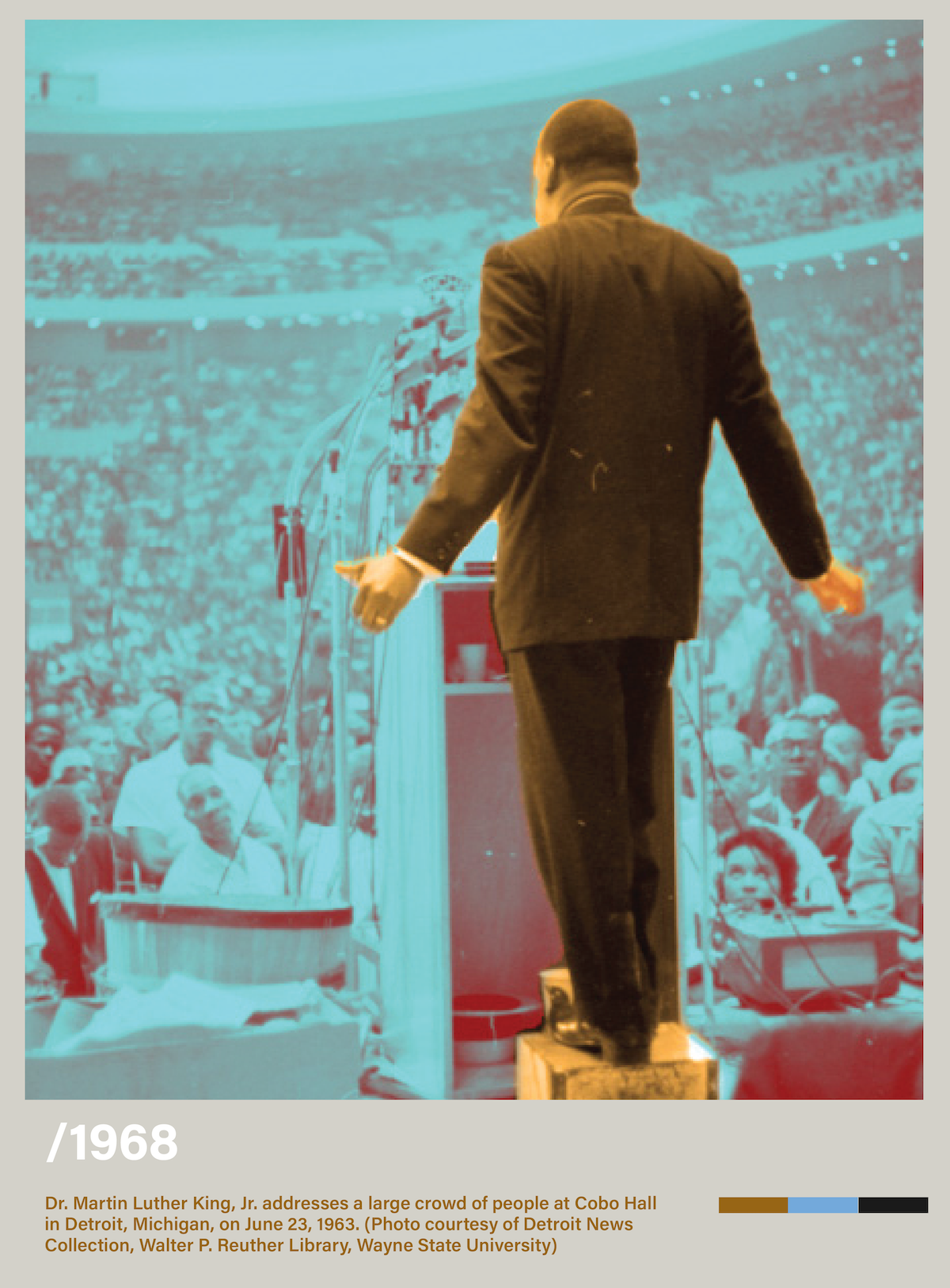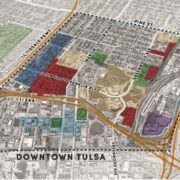
LOCAL & STATE
Rev. Kevin Taylor
Illustration. The Oklahoma Eagle
January is a month that we celebrate Martin Luther King Jr. and reflect on his life, legacy, impact, and vision for a “beloved community.” Likewise, we listen with fresh interest to his words, speeches, books, and articles in search of meaning amid our social and political challenges. And we decry the whitewashing of his message for political expediency or bogus proof of a post-racial world.
Had he not been assassinated on the balcony of the Lorraine Motel in Memphis in 1968, on January 15, Dr. King would have turned 95. He would surely be concerned about the wars in Europe and the Middle East and the humanitarian crises abroad in Gaza, Afghanistan, Haiti, Ukraine, and elsewhere. He would most certainly also be worried about the issues facing Americans right here at home, including immigration, homelessness, healthcare inequities, income inequality, among others
Perhaps most urgently, as a Baptist minister, husband, father, and grandfather, Dr. King would have pressing concerns about the rise of Trumpism, authoritarianism, political violence, evangelical idol worship, and the assault on truth. He was a leader who recognized the need for us all to engage in politics. He would likely be alarmed about the upcoming presidential election.
The January/February 2024 issue of The Atlantic magazine demonstrates why Black Americans – and indeed all Americans – should be alarmed by a second Trump term. Several prominent thinkers use the magazine edition to make the case that a second Trump term would be more detrimental to democracy than the first term was.
For churchgoers and church leaders, there are particular concerns. For instance, not only are parishioners’ autonomy over their bodies on the ballot, but a Trump presidency could also mean that clergypersons are jailed as “enemy combatants” for opposing Trump’s policies and/or supporting our social justice efforts in and out of our pulpits. After all, what good are the rights – free speech, freedom of assembly, the courts, a free press, civil demonstrations, marches, an independent judiciary, among others – we enjoy today if the mechanisms of change Dr. King and other civil rights leaders effectively relied on for generations are no longer tools in our toolboxes?
One of my heavy concerns is that many eligible voters will grow apathetic to the inevitability of a Biden v. Trump rematch and choose not to vote – or to vote for a third-party candidate. Lest we forget that in 2016, more than 10,000 Michiganders left the choice for president blank on their general election ballots, helping cement Trump’s surprise win in that state – and in the presidential race that year. And the record shows that millions of eligible voters, including Black Americans, sat out during the elections altogether. How many of those who stayed home sat on their pew, got their hair done at the local salon or barbershop, or even sang, “We Shall Overcome” at the local King Day celebration?
As Dr. King observed, “The ultimate measure of a man is not where he stands in moments of comfort and convenience, but where he stands at times of challenge and controversy.” I choose to stand up for our democracy. I invite you to do the same. Here are some steps I encourage taking:
- Resisting the temptation to wait to begin get-out-the-vote efforts until after the party nominating conventions later this summer.
- Making a copy of at least one of the articles in the Atlantic’s special section and sharing it with your friends, colleagues and worshipers.
For my fellow church leaders, some particular recommendations:
- Activating your social action commission/ministry to immediately begin registering congregants to vote. Take no one’s registration status for granted.
- Including a voter registration card in the welcome packet/bag presented to all your visitors.
- Devoting at least one bible study per quarter to addressing the historical and contemporary importance of voting and analyzing the salient campaign issues from a Christian perspective.
- Encouraging congregants to vote in your state’s primary election with announcements on the same in the weekly bulletin and/or ministry highlights from the pulpit.
- Screening “Selma, Eyes of the Prize: The Civil Rights Years,” “Rigged: The Voter Suppression Handbook,” or similar as part of your Rev. Dr. Martin Luther King Jr. Day, and/or Black History Month observances.
- Using your local Juneteenth celebration, church picnic, organized lay meetings, or other milestone(s) of significance as voter mobilization opportunities and/or demystifying the Electoral College.
- Combatting voter apathy by asking your parishioners to make a list of people they know in Arizona, Georgia, Michigan, Nevada, New Hampshire, Pennsylvania, and Wisconsin (i.e., family, social media contacts, etc.) and messaging 3-5 of them each month encouraging them to register, vote, and challenging those 3-5 people to do the same.
Sadly, it took the violence on the Edmund Pettus Bridge in Selma, Ala., in March 1965 for America to see – and for likeminded persons of faith across the nation to answer the clarion call from Dr. King about – the inherent dangers of denying disenfranchised people the right to vote.
As we gather to celebrate King, let us not allow ourselves to simply say we celebrated MLK Day 2024 and nothing else. Let us not allow the violence and mayhem of Jan. 6, 2021, fade from our memories lest the sacrifices of Dec. 1, 1955; March 7, 1965; April 4, 1968; Nov. 4, 2008; and June 17, 2015, to be in vain.
Rev. Kevin T. Taylor is a regular contributor to The Oklahoma Eagle. He is pastor at Israel A.M.E. Church (Albany, N.Y.), a writer, and Black community advocate.










